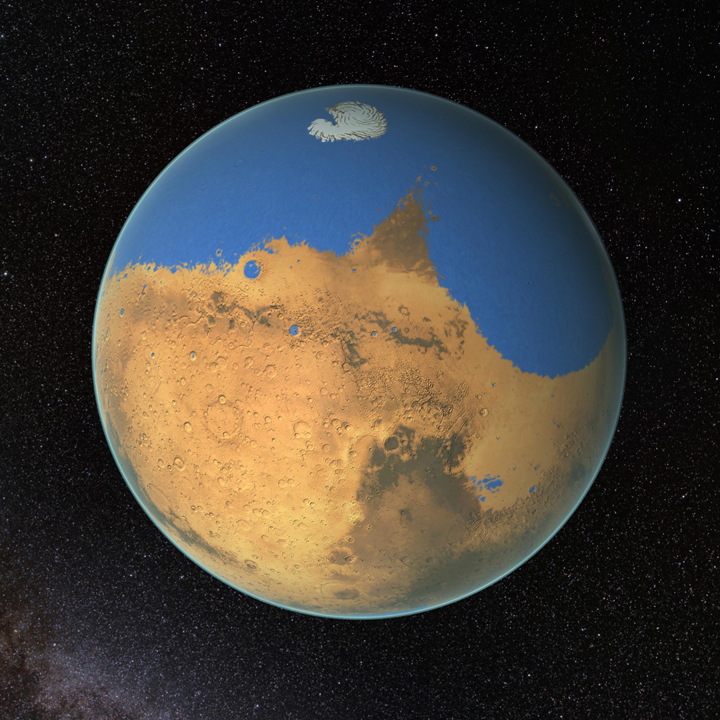Watch the video above: NASA scientists discuss their findings which suggest that Mars once had a vast ocean, likely in its northern hemisphere.

TORONTO – Billions of years ago Mars had oceans and streams. Now, in a new study, scientists have provided an image of what that wet world would have looked like.
Numerous rovers have found evidence to support the theory that Mars was once a wet planet. In 2014, scientists using data from the Mars Curiosity rover even found that there were trace amounts of water in the Martian soil.
READ MORE: WATCH – What does the sunset look like on Mars?

Get breaking National news
The researchers of a new paper published in the journal Science, calculated that about 4.3 billion years ago, Mars had enough water to cover its surface about 137 metres deep. They believe that, more likely, it covered almost half of the planet — in its northern hemisphere — to depths of about 1.6 kilometres.
“Our study provides a solid estimate of how much water Mars once had, by determining how much water was lost to space,” said Geronimo Villanueva, a scientist at NASA’s Goddard Space Flight Center in Greenbelt, Maryland, and lead author of the new paper. “With this work, we can better understand the history of water on Mars.”
The scientists used telescopes in Chile and Hawaii to differentiate between two chemical signatures of two different forms of water in the Martian atmosphere. They then compared the ratio of the two elements in the atmosphere with that contained in a 4.5 billion-year-old Martian meteorite found here on Earth.
READ MORE: Reality Check: Is settling on Mars in the next 10 years a possibility?
The scientists concluded that Mars must have lost 6.5 times the amount of water that exists in the polar region now, which means that the volume of the early ocean would have been at least 20 million cubic kilometres. That’s about 19 per cent of the planet’s surface, slightly more than the Atlantic Ocean here on Earth.
“With Mars losing that much water, the planet was very likely wet for a longer period of time than was previously thought, suggesting it might have been habitable for longer,” said Michael Mumma, a senior scientist at Goddard and the second author on the paper.






Comments